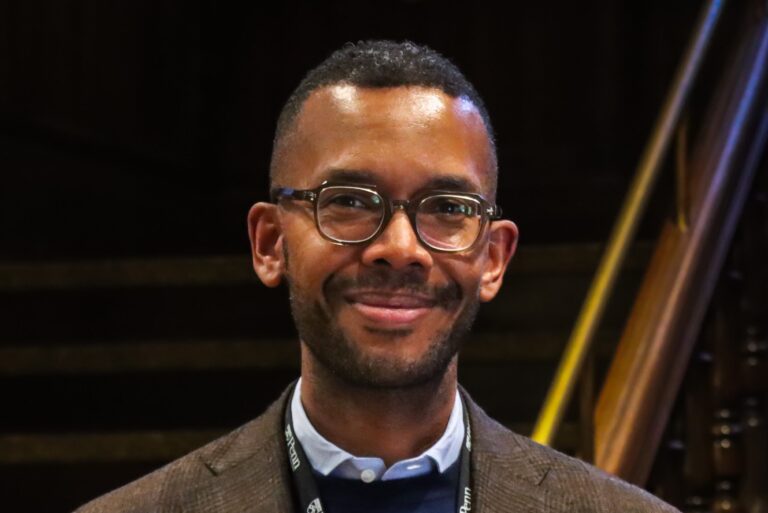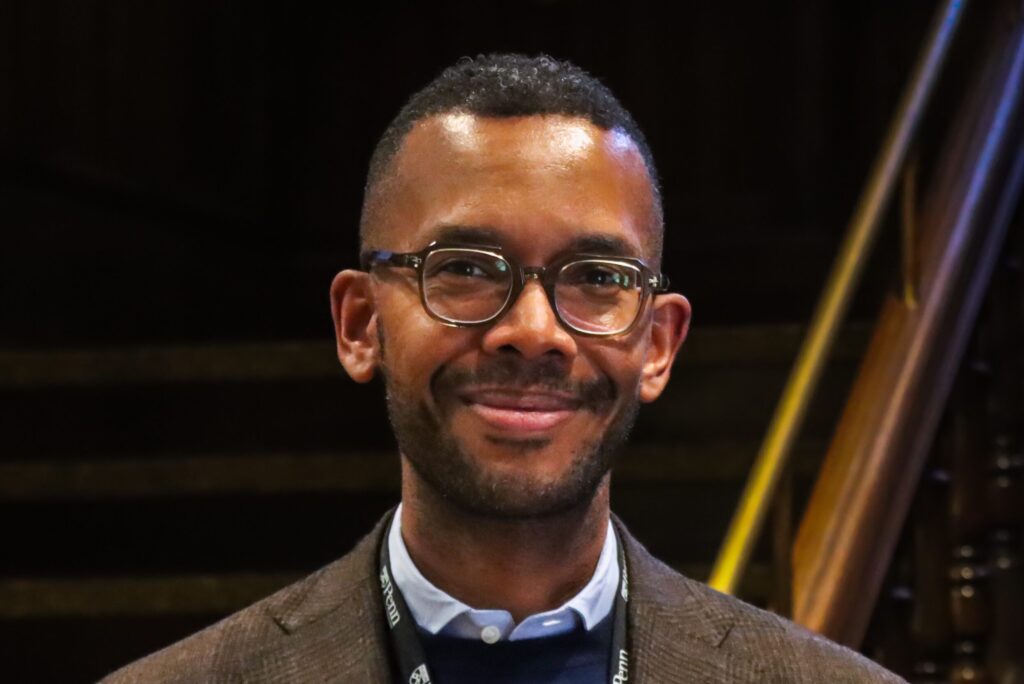Vance Byrd is a Presidential Associate Professor of Germanic Languages and Literatures at the University of Pennsylvania, where he holds a secondary appointment in History of Art. His teaching and research focus on literature in German, visual culture, and print culture since the nineteenth century. His research has been supported by grants from the Andrew W. Mellon Foundation, the National Endowment for the Humanities, the National Humanities Center, and the Getty Research Institute.
In literature, film, and museum exhibitions, the descriptions of sound and audio recordings help us imagine how violent episodes from history were experienced. These sounds also shape our relation to the past. This talk focuses on the Ukrainian artist collective Open Group’s films Repeat After Me (2022, 18 min.) and Repeat After Me II (2024, 35 min.), which currently are on view in the Polish Pavilion at the 2024 Venice Biennale. These films show Ukrainian refugees displaced by the Russian invasion who imitate the sound of weapons systems intended for use against tanks and military personnel rather than against civilian populations. I will examine how the call-and-response structure—the exhibition visitors are asked to repeat the sounds uttered by the Ukrainian refugees in these films—is a form of participatory memory work. By calling on visitors to produce acts of witnessing and judgment in the Polish Pavilion, Open Group’s films immerse the visitors in sonic memories of warfare and forces them to take sides on victimhood and guilt as well as democratic values. To listen and then repeat after the war refugee’s testimonial has the potential to become a powerful act of empathy and political solidarity, which will help us think together about the possibilities for coming to terms with the past and present at art exhibitions though the interrogation of sound and visual culture.


Occurrences
-
Monday, October 28, 2024, 12:15 p.m.–1:30 p.m.